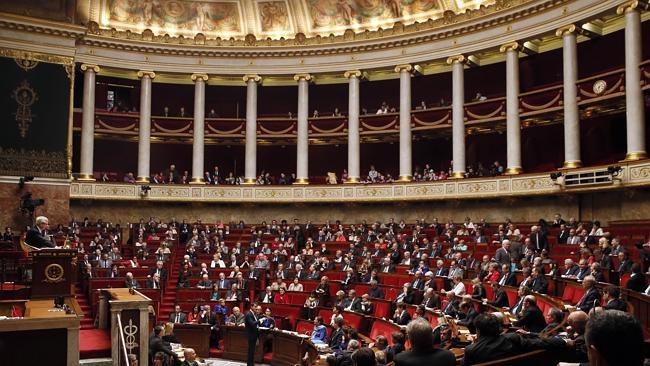Rome, Paris set revival strategies
THE NEW centre-left prime ministers of France and Italy attempted yesterday to swing their sclerotic economies towards market-friendly reform.

THE new centre-left prime ministers of France and Italy attempted yesterday to swing their sclerotic economies towards market-friendly reform while promising to shield their people from EU-driven austerity.
Manuel Valls, 51, appointed last week by President Francois Hollande to revive his government, set out his plans to parliament, pledging to “restore France’s control over its destiny by giving it back the economic force that it lost a decade ago”.
He spelled out how he would finance Mr Hollande’s recent promise to cut employers’ payroll charges by €50 billion ($73bn).
In Rome, Matteo Renzi, 39, who heads the eurozone's other reform laggard, held a cabinet session to earmark a three-year economic program to lower income taxes through a €4.5bn reduction in public spending.
The government promised to reduce taxes for about 10 million people who earn less than €25,000 gross a year, bringing low earners a €80 saving a month from May. The move will cost “around €6.7bn” this year, which will be financed by reducing public spending by €4.5bn and raising €2.2bn through financial transactions.
“This plan is an act of social justice. There are those who have taken much, too much over the years, and it is time they gave some back,” Mr Renzi said.
Public-sector employees would not be able to earn more than the Italian President, Giorgio Napolitano, whose salary was €230,000 a year — a sum still twice what the Prime Minister earned, he said.
The government lowered this year’s growth forecast to 0.8 per cent from the 1 per cent growth estimate made by the previous government. The International Monetary Fund and the European Commission see the eurozone’s third largest economy growing by 0.6 per cent this year.
“We are not condemned to decline, Italy can get out” of the mire, Mr Renzi said. Last year Italy exited the EU’s excessive deficit procedure. The government faces a huge challenge in reviving the economy, which contracted by 1.9 per cent last year. Debt rose to 132.6 per cent of GDP last year: the highest level in the EU after Greece.
Mr Renzi's bold plans to force reform while ditching some of the budget-balancing rules that bind the euro have partly served as a model for Mr Valls.
Before the Socialist-dominated parliament gave a vote of confidence yesterday to his government, Mr Valls said: “I do not want to ruin growth, or the deficit will not come down ... of course we must straighten up our public finances but not by destroying our social model or our public services. I am for budget responsibility, not for austerity.”
Payroll taxes paid by companies to finance welfare would be entirely eliminated for minimum wage salaries by 2015, he said.
On the €50bn of budget savings the government plans to make, he said: “The effort will be shared by all. The state and its agencies will have the lion's share, some €19bn, €10bn for health insurance, and €10bn for local authorities.”
Mr Valls also proposed cutting France's dense layer of provincial government by eliminating half the 17 administrative regions by 2017.
with AFP


